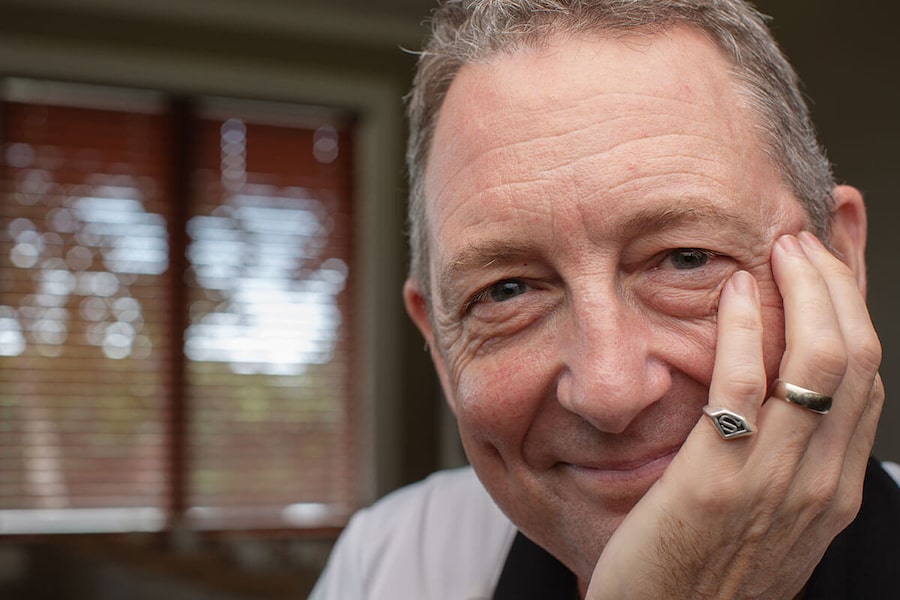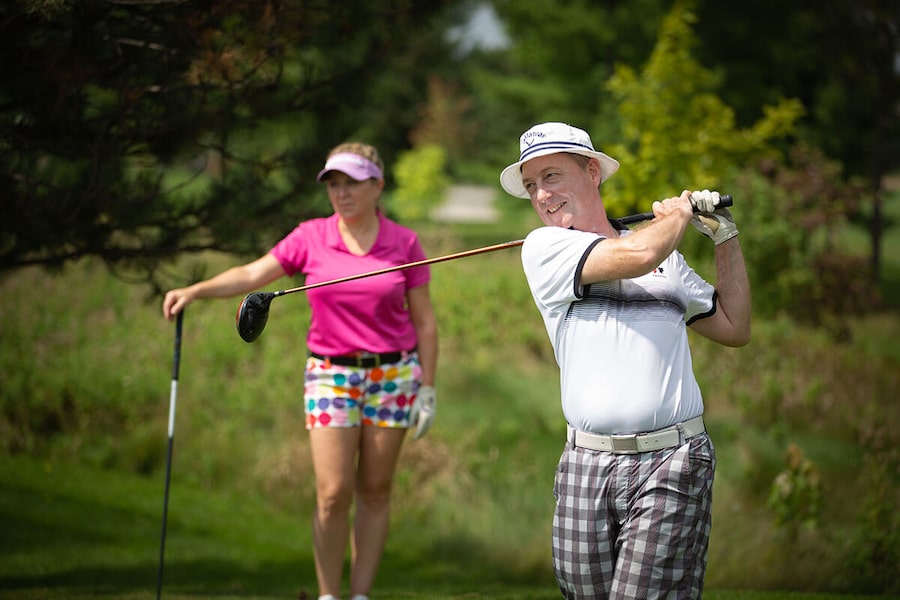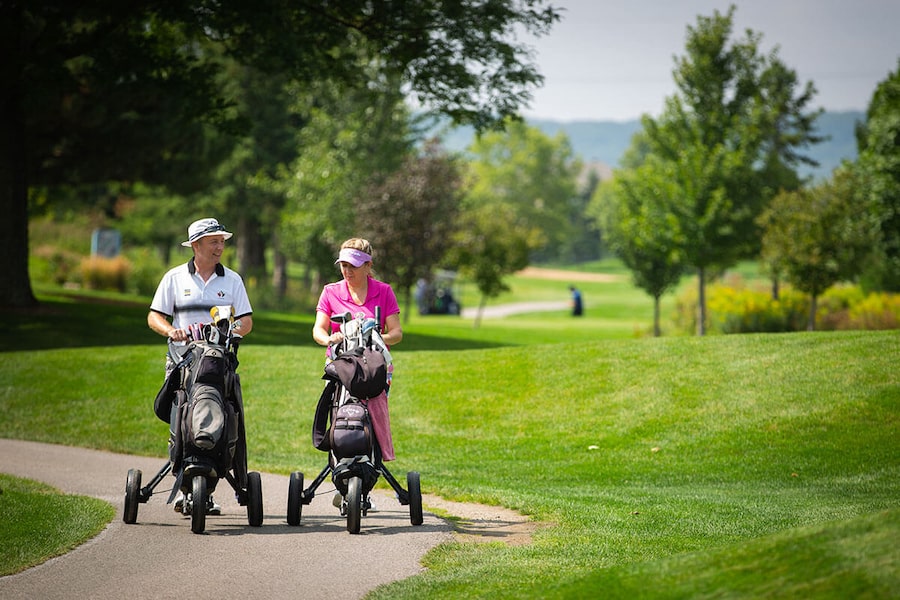
This is the story of John Dickout, a Burlington, Ont. man who experienced a sudden and potentially deadly heart attack while living abroad. A heart transplant at PMCC opened the door to unexpected friendships that profoundly shaped the course of his recovery.
John Dickhout is a 55-year-old man with the energy of someone several decades younger. The Burlington, Ont., resident speaks with the projection of a stage actor, apt for a man who decided to plunge full-time into acting two years ago. His eyes well up with tears when discussing emotional subjects, and he has a range of unconscious habits – like angling sideways when engaging in conversation and twisting the silver Superman insignia ring on his left pinky.
- John Dickout
In that last detail, there’s a profound link between subject and object. The ring once belonged to Adam Prashaw, a 22-year-old man from Kanata, Ont. And the heart giving Mr. Dickhout his high colour and boundless energy once belonged to Mr. Prashaw, too.
“I wear this to remind me that he’s my superhero,” Mr. Dickhout says.
Mr. Prashaw passed away in 2015 after suffering an epileptic seizure and drowning in a hot tub. Described as kind, generous and deeply loved, he had signed on as an organ donor to ensure he would continue his spirit of giving back to others. Mr. Prashaw’s thoughtfulness would end up saving Mr. Dickhout’s life.
In 2013, Mr. Dickhout suffered a heart attack as a result of sarcoidosis, a rare disease that causes the immune system to turn on the body’s internal organs.
“The whole thing was surreal, because I went from what I thought was completely healthy to completely a mess overnight, with no explanation and no understanding,” he says.
At the time of his heart attack, Mr. Dickhout, a call centre executive, was living in the Philippines. He had relocated there from Welland, Ont., with his wife, Lynn, when an opportunity arose to help get a new satellite location off the ground. The Dickhouts made the most of their new adventure, exploring their surroundings and playing golf with other ex-pat friends on Sundays.
One Saturday, Mr. Dickhout woke up in the middle of the night with a racing heart. He tried to control his breathing and eventually went back to sleep.
“Old depictions of heart attacks have people clutching their chest in agony and falling over, and that’s part of the challenge, because that’s what you expect. [But] that’s not what happened to me,” he recalls of the heart attack that nearly killed him that day.
Mr. Dickhout was immediately admitted to intensive care in the Philippines. His condition confounded his doctors, but they were clear about one thing: the otherwise perfectly healthy middle-aged man would need a heart transplant.
With costly private health care their only option in the Philippines, Mr. Dickhout and his wife moved back to Ontario, where he was referred to the Peter Munk Cardiac Centre. There, he was “extraordinarily fortunate” to land in the office of cardiologist Dr. Heather Ross, he says. Dr. Ross is Director of the Ted Rogers and Family Centre of Excellence in Heart Function and the Cardiac Transplant Program at the Peter Munk Cardiac Centre.
“The first time I met her, I felt I’d known her my whole life,” Mr. Dickhout says of Dr. Ross. “She wasn’t so much focused on the event, or the ‘why.’ Her focus was on getting better and, ‘What do we do now?’”
In 2016, Mr. Dickhout received a call from the Peter Munk Cardiac Centre informing him they’d found a match. At the time, as per custom, he was given no information about his donor’s identity in order to protect the family’s privacy. The heart was a fit, and thanks to the great work of Peter Munk Cardiac Centre cardiovascular surgeon Dr. Terry Yau, the transplant operation was a success.
“The whole thing was extraordinary,” he says of his medical team at the Peter Munk Cardiac Centre. “I am overwhelmed with gratitude to everyone involved in my care and recovery.”
Several months post-op, Mr. Dickhout felt compelled to write a letter to his donor’s family through the Ontario Trillium Foundation, who removed markers of identification before passing it on. When he received a reply from the family, he realized he wanted to know his donor’s identity. He plugged five or six “clues” from the letter into Google and pulled up an obituary for Mr. Prashaw. “I was sure it was him,” he says.
Taking a risk, Mr. Dickhout set up a social media account and contacted the father of the man whose heart he believed had ended up in his chest. Once again, it was a match.
He’s since developed a “special friendship” with Mr. Prashaw’s family, culminating in the clan travelling from all over the East Coast to cheer for Mr. Dickhout as he competed in the 2016 Canadian Transplant Games in Toronto. (He took the gold medal in golf and finished fourth in his age category for the 5K run.)
In addition to gaining a heart and a new family, Mr. Dickhout remains awed by the luck that led him to be the “caretaker of Adam’s heart” and to the Peter Munk Cardiac Centre.
Struggling to speak through tears, Mr. Dickhout recalls what Mr. Prashaw’s father wrote to him during their early correspondence.
“Based on your enthusiasm and zest for life, we know our son’s heart is also the perfect match for you.”
Advertising feature produced by Globe Content Studio. The Globe’s editorial department was not involved.






